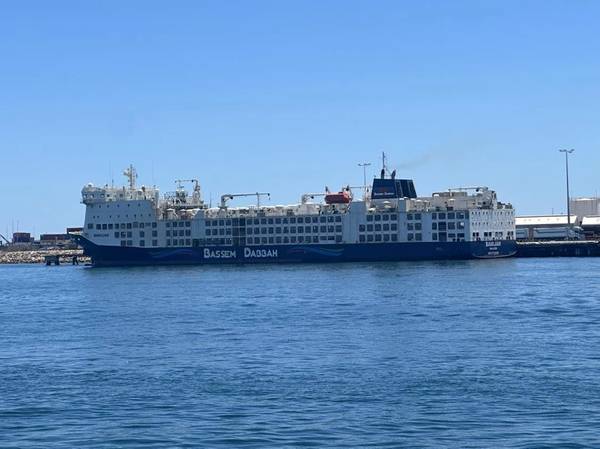
The Australian Department of Agriculture continues to assess an application to re-export the sheep and cattle currently loaded on the livestock carrier Bahijah.
The government recalled the vessel after it diverted from the Red Sea over a week into its voyage to the Middle East. The Bahijah had loaded cattle and sheep in Fremantle, Western Australia, and departed for the Middle East on January 5, 2024.
The vessel has an Israeli company name painted in large letters along the side of the hull, and it is currently docked in Fremantle taking on supplies. The livestock onboard were assessed on January 31 by two veterinarians engaged by the Department. The report from those veterinarians indicates no signs of significant health, welfare or environmental condition concerns with the livestock on board.
However, the Australian Alliance for Animals is calling for "common sense to prevail." The new voyage would be expected to avoid the conflict zone by circumnavigating the African continent to access Jordan via the Suez Canal with an expected journey time of over 33 days.
Alliance for Animals Policy Director Dr Jed Goodfellow said: “These animals have already endured 27 days at sea – that’s almost a month of standing and lying in their own faeces, weathering heat and humidity in tight quarters, and enduring the multitude of additional environmental stressors inherent to the live export process.
“The cumulative stress these animals have faced, and will face should they be re-exported, would be unbearable. The fact the Department is even considering this application is shocking – they haven’t even obtained an independent veterinary assessment of the animals’ health and welfare.
“It would be the height of recklessness to subject these animals to another gruelling 33 days at sea under these circumstances. The Department already made a serious error of judgement in approving the shipment to set sail in the first place, knowing of the risks posed by Houthi Rebel attacks in the Red Sea as far back as November.”
Professional veterinary group Vets Against Live Export (VALE) estimates the proposed voyage would result in the animals being onboard for around 70 days. It cites the risks to the livestock of such long voyages, noting the Cormo Express disaster of 2003 occurred when 58,000 Australian sheep were rejected because Saudi Arabia alleged there was scabby mouth cases onboard. “The government had to buy the sheep (with taxpayer money) and then frantically approach over 30 nations to take the animals. Meanwhile, sheep suffered and died, with the survivors eventually unloaded in Eritrea 80 days later. 6,000 sheep died, and the government paid Eritrea $1 million (more taxpayer money) to take the survivors.”



